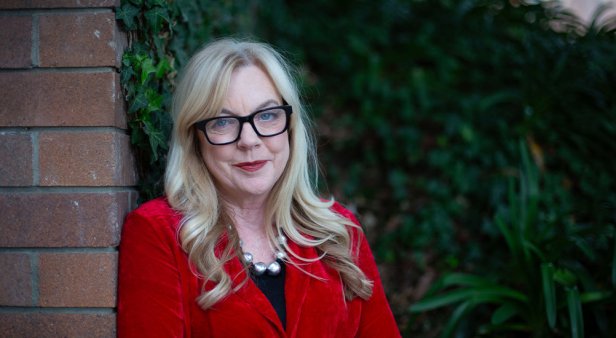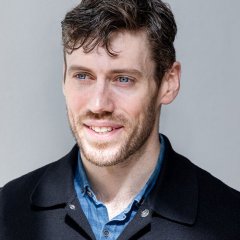You’ve had a varied and storied backstory – studying science, law, drama and mathematics as well as practising for many years as a human-rights lawyer – when in your life did you realise writing was one of the passions you wished to pursue?
I have always written stories, even plays. I used to do it for fun in the neighbourhood and because I was in a very Catholic community, at Christmas each year I would put on a Nativity play that sometimes brought in other characters etc. I think writing for me was the way I made myself feel connected to the world.
Many of your works focus on complicated issues within society, what you have called ‘knots’ in law and culture. How do you decide, or recognise, when something is a topic you want to explore in your art?
When I see a paradox or a strange juxtaposition, an unfairness that seems inbuilt into a system or something that really unnerves me about how the world works, I find myself thinking on it over and over. I then find myself wanting to delve into it more intensely and find a way to show the problem, or the strange ‘knot’. I also just love writing characters and seeing how they deal with the world we live in, how they sometimes find themselves in a situation that they now must navigate and decipher, and which consequently changes them profoundly.
Your play Prima Facie, which explores sexual assault and the legal system’s response to it, has had a particularly explosive impact with multiple award winning runs across multiple continents. What, if anything, in its reception has particularly surprised you?
The West End and the Broadway runs were the dream seasons of a playwright – those who attended were so visibly moved and responsive, all jumping to their feet in tears. That’s a pretty amazing experience for a playwright – we all write in a dark room alone and to see that level of reception blew me away. The biggest surprise however was not only audiences, but how members of the legal systems in various countries have responded. It has also made me even more aware of how important it is to have women in positions of power – they bring with them their experience of the world and when they can find a way to effect change, they find a way to do just that. The next biggest surprise was how many languages and countries are doing their own productions – it has become one of the most translated plays and as such it is in every country (sometimes in many different productions) in every language I have ever heard of. I realise that the play and the book are no longer mine – they are out there for the world to interpret and to start conversations.
You’ll be at the Brisbane Writers Festival discussing your first novel, which is an adaptation of the play. What inspired this decision and what was the process of adapting the play into a novel like?
The process was just so wonderful. I enjoyed every minute of it. I wrote most of the book up by the beach in a shack with my family going to and from the beach and various fun adventures. That might seem nonsensical that I was enjoying being in the house writing the entire time, but I loved it so much, and then when I closed my laptop at night I had my family to hang out with and to entertain me on the balcony with what they had all gotten up to.
The actual process of writing the book was so rewarding because I was able to stretch right into the character, fill in all the details that I had to reluctantly take out of the play. It was more intimate, more internal, and I could explore her family and her relationships in great depth.
So many incredible actors have played Tessa, from Sheridan Harbridge to Jodie Comer. Have any of their interpretations made an impact on how you think about the character or the story?
I think every actor has a different Tessa, and my own Tessa is very strongly defined for me. I have probably been influenced by the questions these brilliant actors asked me as they have delved into her character, but I have only seen a handful of the Tessas that are out there. When I was in Germany recently for my book tour of Prima Facie I was informed that there are 20 different Tessas in 20 different German productions this season. I saw two of those shows (in German) and they were so different from each other. There are now honestly dozens of Tessas in all countries and cultures. I think that in many ways the character is every woman. I have a soft spot for Sheridan and Jodie as they were the first two – they were the ones who helped me to shape her due to the questions they asked me.
You’ve worked in theatre, opera, film, television and now literature. What appeals to you about working across different mediums? Do some ideas feel more like plays or books or do you start with the artform and shape stories to suit their strengths?
I love writing across mediums, each has a different bent to it. I will always feel that theatre is my first love and I think that is because the first thing I think of when I connect with theatre is that the playwright is ‘playing with ideas’ and finding a way for a story to play with an idea. I love leaning into that. But writing this book was such a joy, I have others to follow and I am enjoying it so very much. It feels less examined before it is in its final form. There are no actors or directors peering over your shoulder as you write. A very relaxing solitary experience from the beginning to the end. As to film and television, that’s an entirely different thing, but has its own exciting and enticing aspect. I am writing my shows with some of the giants of TV in both the United Kingdom and United States of America, so I find that terribly thrilling and hanging around with a group of other writers in TV is such a gift – so many laughs and incredible fun. Opera was a joy because I would see what I wrote become songs and music – see it sung by some incredible performers and it just felt magical.
You are impressively prolific, not to mention booked and busy, you’ve mentioned that Prima Facie was a slow burning idea you nursed for many years and seem to work with multiple projects on the go. What does your workflow look like?
I wish I knew. My workflow changes every week to be honest – but I space all of my work out according to deadlines and then I work towards those. I have so many projects but each one of them is as precious as the others, and I know when I bury myself in one of them that I don’t surface until it is done. I like working in libraries around the world and in my own writing office at home in Australia – it’s particularly lovely now because Sydney has gone cold and so I can light the fire and feel so cosy in there. My biggest problem is that my bookshelves and cupboards are all too full – and I have piles of documents all about me on the floor for different projects, I like to see what I have ahead of me, but once the dog or my young adult children start messing with the floor I am in deep trouble in terms of workflow! I do have a magnificent PA who works for me organising my deadlines which makes a difference – also makes you feel that you are not in this alone!
At the Brisbane Writers Festival you will also be appearing on the panels On the Basis of Sex and After, which will discuss feminism and sexism in the literary world and the wider world it depicts. These are huge topics, but is there anything you’d particularly like to draw people’s attention to in the current moment?
There is so much to say on this that I might wait for the panel – I am with such wonderful women – but I will say that one of the things the patriarchy has done that has been a huge stumbling block for women is to divide and conquer us. This tradition of setting women in competition with each other, from love affairs to jobs, to positions of power or even just trust issues. I can only say that once we realise we’re stronger together, that our unity is our strength, then we will see that bringing other women down and talking badly about them are tools of the patriarchy to bring us all down. Women united will never be defeated!
I am also aware that the biggest issue in this country at the moment – and indeed around the world – is femicide and gendered violence. We have been speaking out about this for generations, it is time that something seriously big changes.
Your play RBG: Of Many, One will soon be coming to Brisbane. What was it about Ruth Bader Ginsberg that drew you to this story and made you want to tell it? Is there a specific question or thought you hope people will walk away with from this play?
I took great solace in RBG when I was at law school, she was an icon for me. A woman who didn’t come from power, didn’t have all the connections or opportunities but she had her own grit and determination, a fire burned in her to effect change, especially for women. She fought against so much and came out the other end having made the most incredible changes – and her intellect was something to behold. I needed to write about her, and I also needed to find her humanity, her fragility and to show that her strengths were also some of her own hurdles. RBG is magnificently played by Heather Mitchell. It has sold out for two entire seasons in Sydney at Sydney Theatre Company and the Opera House, as well as the Melbourne run in the Melbourne Arts Centre huge playhouse and Canberra. I think it is doing the same in Brisbane, and I hope that people can bring family and friends and make a night of it. It seems that people come again and again. There is also a funny story about this play that I am keen to chat about at some stage – how the men delighted in it. But that is for the panel or another time!
You can catch Suzie Miller at the Brisbane Writers Festival on Saturday June 1 at Suzie Miller: Prima Facie and on the panel for On the Basis of Sex, and on Sunday June 2 on the panel for After.

